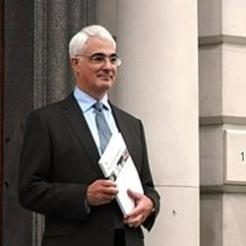The government paved the way for more cross-border donating today as it announced in its 2010 Budget report that UK charity tax reliefs will be extended to charities and amateur sports clubs in Europe, Norway and Iceland.
The decision follows the Persche judgment by the European Court of Justice in January 2009 and means that UK donors making gifts to charities in those countries will be able to claim tax relief from the UK government.
The move is not expected to affect most UK charities immediately but signals the start of a more liberal flow of giving between the countries of Europe.
John Low, chief executive of the Charities Aid Foundation, welcomed the news and said: “These changes recognise that disadvantage doesn’t respect borders. It is right that donors are empowered to give tax-effectively where they see the greatest need, regardless of national boundaries.”
'Sting in the tail'
But Sam Macdonald, a partner at Farrer & Co who sat on the sector committee that was consulted by HMRC over the change, warned there was a “sting in the tail” that aimed to address HMRC’s concerns about fraud or other abuses of the new tax benefits.
The access to tax relief will be accompanied by a new definition of ‘a charity for tax purposes’ which will include a requirement that all EU charities that wish to claim tax relief must demonstrate they are run by a ‘fit and proper person’.
While all existing UK-registered charities will likely be assumed to pass this test, it will inevitably increase the regulatory burden on the sector. Macdonald said HMRC had also been warned that “a charity must be able to know, without doubt, whether it qualifies for tax breaks at any time, and what the implications will be if it is not deemed to pass the ‘fit and proper person test’”.
Macdonald said the sector would scrutinise the new legislation and accompanying guidance when it is published to ensure its concerns are addressed.
Low added that he hoped the UK charity sector will be successful in attracting more overseas donors as other countries respond to the requirements set out by the European Commission under the terms of the EU Treaty.
VAT on sharing services
Other Budget announcements of interest to charities included a welcome acknowledgement that the government recognises the benefits that can be gained by charities sharing services and that the existing VAT regime prevents these efficiencies being realised.
“The government will work with charities to consider options for implementing the EU cost-sharing exemption,” the report said. Charity Tax Group director Helen Donoghue said she was “absolutely delighted” with this news, as it is something CTG had campaigned on for a long time.
Social investment
On social investment, the government reiterated its £75m commitment to the Social Investment Wholesale Bank and added the next Spending Review would examine options for recycling the income from existing social investments to further develop the size of the market.
It also said it would support third sector lenders to improve the supply of affordable credit to low-income households.
Gift aid, substantial donors, and pooled funds
The gift aid forum set up by government will make recommendations “by the autumn”; the government will “continue to explore the details of the proposed new purpose test for anti-avoidance rules relating to substantial donors; and a response to the charity pooled funds consultation and the proposed EU directive on alternative investment fund managers would be published in the autumn.
Postal charges
However, one potentially worrying move that the sector needed to keep an eye on, according to Donoghue, was the new VAT exemption on postal services. This will mean that business post will have VAT added to it and charities should watch closely to ensure their postal costs don’t rise, she said.









